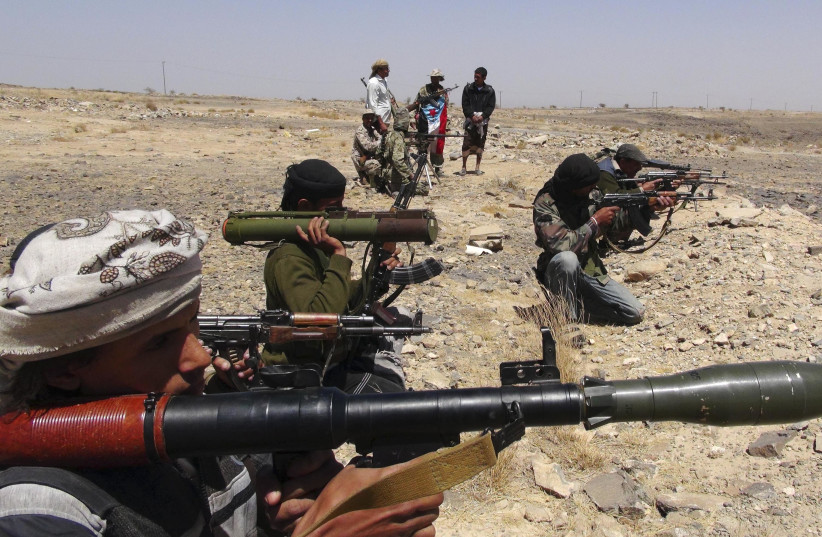The Houthi missile attack on Israel on Sunday was an important move for the Iranian regime.
The attack was part of Iran’s overall war against Israel in the region, using its proxies, and not simply in a Houthi-centric context. The group claimed to use a “hypersonic” missile, a claim that dovetails with Iran’s claims of developing a hypersonic missile last year. This is very much part of the Iranian multi-front war plan against Israel, a war launched by Hamas on October 7, 2023.
Iranian state media heralded the Houthi attack in an article on IRNA on Monday. It quoted Yemeni Foreign Minister Shaya Mohsen Al-Zindani as saying that “the country’s armed forces targeted the heart of Israel with missiles to send a message to the Zionist regime that it is not safe.”
The Houthis themselves put out a statement to pro-Iranian Al-Mayadeen media on Sunday evening, noting that their “armed forces are developing their capabilities following the confrontation with the Saudi coalition and that they have been able to expand their capabilities in various fields.”
Their claim is like this: Years of war against Saudi Arabia, between 2015 and 2022, helped the Houthis galvanize their abilities. The group was backed by Iran in the war against Saudi Arabia and had tried to capture Aden in Yemen in 2015, on the brink of taking over a swath of the country.
The Saudis led a number of Arab countries to intervene in Yemen to back the government, which was on the ropes. The Houthis held on and got support from Iran, and soon, they were able to attack Riyadh with ballistic missiles.
A learning curve
The Houthis took the knowledge they gained from that war and blended it with Iranian support, and now they are attacking Israel. The war with Saudi Arabia was a prototype curve for the Houthis and Iran. China brokered the Saudi-Iran reconciliation between 2022 and 2023, which laid the groundwork for the Houthis to attack Israel in support of Hamas.

Now, Iran is likely using the Houthis to test weapon systems against Israel, such as ballistic missiles. The Houthis are Iran’s test bed, a kind of terrorism garage in which Tehran tries out different weapons and tinkers with them. For example, Iran exported its Shahed drones to the Houthis in 2020-2021 before exporting them to Russia for use against Ukraine in 2022.
The Houthis are excited about their missile attack on Israel, bragging about it in the report to Al-Mayadeen, which also appeared on IRNA, that “Yemeni missiles target and hit moving sea targets… [with the attack on Israel, here] is another important weapon that will be used at the right time.”
